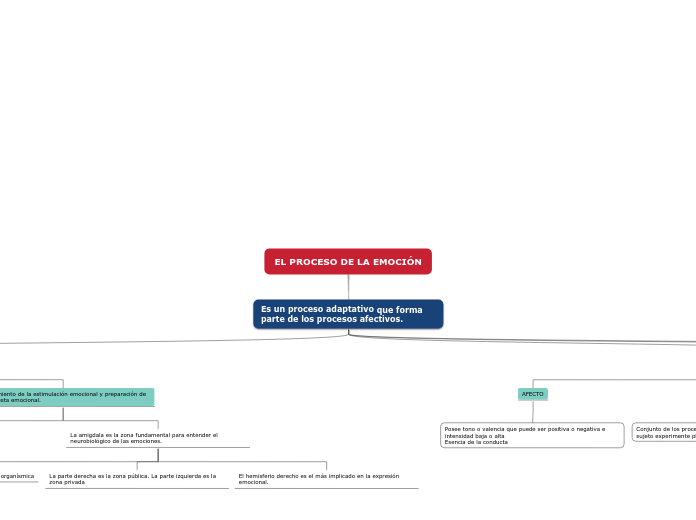by laura nataly polania peñuela 5 years ago
442
EL PROCESO DE LA EMOCIÓN

by laura nataly polania peñuela 5 years ago
442

More like this
Type in the name of the multiple-perspectives text.
Example: Bridge to Terabithia by Katherine Paterson
Identify an important issue from the text that is being presented from different angles. Type it in.
Example: Jesse's drawing talent.
Decide on the fourth point of view
Type in the name of the last character whose perspective on the issue you are going to present.
Example: Leslie Burke, Jesse's new next-door neighbor, and best friend.
Point of view
Type in a relevant quote that highlights the character's point of view. Try to follow a citation format: author's name, chapter, and page.
Example: I can't get the poetry of the trees,' he said. She nodded. Don't worry,' she said. You will someday. He believed her.' (Paterson, 4. 24)
PROCESOS
How is the viewpoint introduced in the story?
Choose an answer:
1. Ocurrencia o aparición del estimulo 2. Percepción del estimulo 3. Evaluación y valoración
Whose character does the third point of view belong to?
Type in his/her name.
Example: Mr. Aarons, Jesse's father.
What does the character think, say or do that suggests their perspective on the issue?
Type in a quote and try to maintain the citation format.
Example: 'He would like to show his drawings to his dad, but he didn't dare. (...) He'd thought his dad would be pleased. He wasn't. What are they teaching in that damn school? he had asked.' (Paterson, 2.8)
Funciones
What kind of narration introduces the viewpoint?
Choose an answer:
3. El cambio en la jerarquía cognitiva y conductual 4. La motivación
1.Las emociones poseen funciones: El escape o pérdida de homesostsis 2. La recuperación de homeostasis
Decide on the second point of view
Name the character (it can either be the main character or one of the supporting characters) whose point of view you are presenting.
Example: Miss Edmunds, Jesse's music teacher.
Toma de conciencia respecto a la ocurrencia de una emoción. El individuo sepa que esta experimentando una emoción
Respuesta multidimensional, muy breve e intensa. Relación sujeto- ambiente
Conjunto de los procesos afectivos Probabilidad de que el sujeto experimente placer
Type in a quote that points out the character's position about the issue.
Try to follow a citation format: author's name, chapter, and page.
Example: 'She said he was unusually talented, and she hoped he wouldn't let anything discourage him.' (Paterson, 2. 8)
Posee tono o valencia que puede ser positiva o negativa e intensidad baja o alta Esencia de la conducta
How is the viewpoint introduced in the story?
Choose an answer:
Decide on the first point of view you are going to present.
Type in the name of the character (it can either be the main character or one of the supporting characters) whose point of view belongs to.
Example: Jesse Oliver Aarons, Jr., the main character of the novel, a fifth-grader living in a rural Southern area.
La amigdala es la zona fundamental para entender el neurobiológico de las emociones.
El hemisferio derecho es el más implicado en la expresión emocional.
La parte derecha es la zona pública. La parte izquierda es la zona privada
La amigdala prepara una respuesta organísmica
La amígdala recibe información sensorial y está en contacto con el hipocampo, el prosencéfalo basal y los ganglios basales.
Type in a relevant quote that highlights the character's point of view towards
Es un proceso adaptativo que forma parte de los procesos afectivos..
Try following a citation format: author's name, chapter, and page.
Example: 'Jesse drew the way some people drank whiskey. (...) Lord, he loved to draw. (...) When he was in first grade, he told his father that he wanted to be an artist when he grew up.' (Paterson, 2. 7)
Los lóbulos frontales se encuentran claramente asociados con cambios a la conducta.
Las funciones cognitivas y afectivas dependían de zonas diferentes.
Planos
El que tiene que ver con la expresión- mediante el lenguaje
El que tiene que ver con el conocimiento de la emoción
Desconexión entre estructuras corticales y estructuras subcorticales
What type of narration introduces the viewpoint?
Choose an answer: